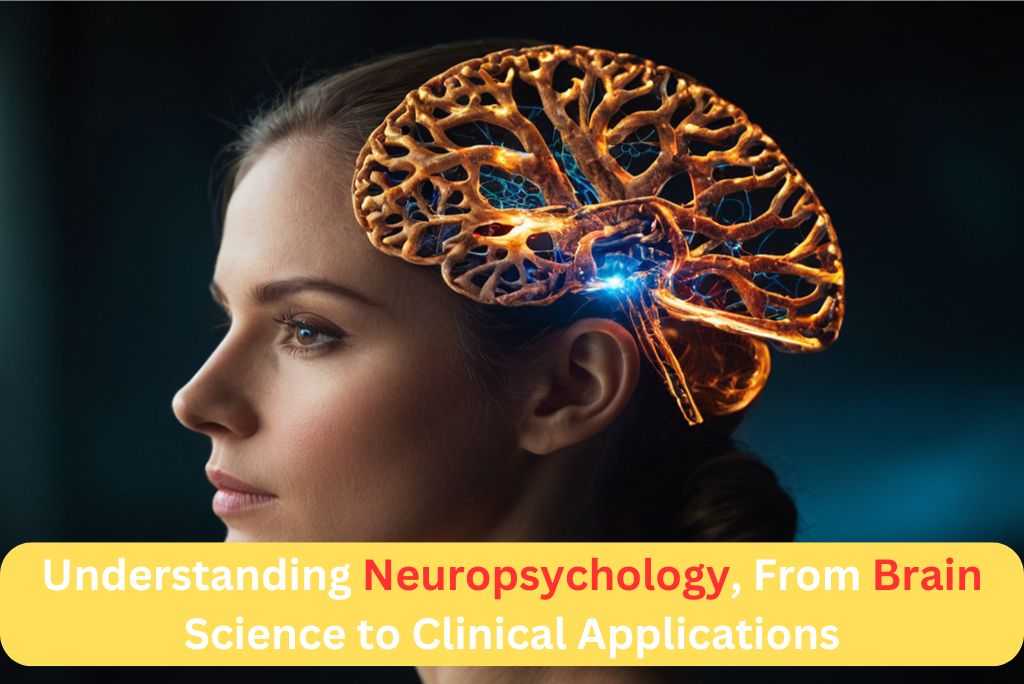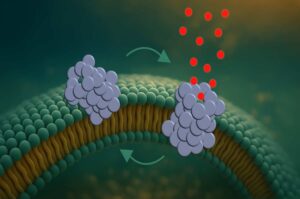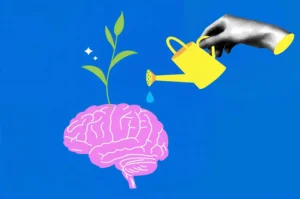Neuropsychology: Understanding the Bridge Between Brain and Behavior
Neuropsychology stands at the fascinating intersection of neuroscience and psychology, exploring how the structure and function of the brain relate to specific psychological processes and behaviors. This field combines the empirical rigor of neuroscience with the behavioral insights of psychology to understand both healthy brain function and the impact of brain disorders on human behavior.
Table of Contents
ToggleThe Foundation and Evolution of Neuropsychology
The roots of neuropsychology trace back to the 19th century when physicians began noticing that damage to specific brain areas resulted in predictable behavioral changes. The famous case of Phineas Gage, a railroad worker who survived an iron rod passing through his frontal lobe, provided early insights into the relationship between brain regions and personality. This case laid the groundwork for modern neuropsychology by demonstrating that specific brain areas control particular aspects of behavior and cognition.
Today, neuropsychology has evolved into a sophisticated discipline that employs advanced technology and methodologies to understand brain-behavior relationships. Modern neuropsychologists use tools like magnetic resonance imaging (MRI), electroencephalography (EEG), and comprehensive cognitive assessments to map brain function and dysfunction.
Core Areas of Study in Neuropsychology
Memory and Learning
One of neuropsychology’s primary focuses is understanding how the brain encodes, stores, and retrieves information. Research has revealed that memory isn’t a single system but rather a complex network involving multiple brain regions. The hippocampus plays a crucial role in forming new memories, while different cortical areas store long-term memories. Understanding these systems helps explain various memory disorders and guides therapeutic interventions.
Language and Communication
The study of language processing has been revolutionary in neuropsychology. Broca’s and Wernicke’s areas, discovered in the 19th century, were among the first brain regions linked to specific functions – in this case, speech production and comprehension. Modern research continues to uncover the intricate neural networks involved in language processing, helping us understand and treat conditions like aphasia.
Executive Functions
Executive functions encompass higher-order cognitive processes like planning, decision-making, and impulse control. The prefrontal cortex plays a central role in these functions. Neuropsychological research has shown how damage to this area can impact personality, social behavior, and the ability to plan and organize – insights that are crucial for understanding conditions like ADHD and developing appropriate interventions.
Emotion and Behavior
The relationship between brain function and emotional processing is another key area of study. The limbic system, including structures like the amygdala and hippocampus, plays a crucial role in emotional processing and memory formation. Understanding these connections helps explain mood disorders and guides treatment approaches.
Clinical Applications
Assessment and Diagnosis
Neuropsychological assessment is a cornerstone of clinical practice. These evaluations typically include:
- Comprehensive cognitive testing
- Behavioral observations
- Detailed patient histories
- Standardized psychological tests
- Motor and sensory evaluations
These assessments help diagnose conditions ranging from traumatic brain injury to neurodegenerative diseases like Alzheimer’s. They also provide valuable information about a patient’s functional capabilities and limitations.
Rehabilitation and Treatment
Neuropsychological insights guide rehabilitation strategies for various conditions. Understanding neuroplasticity – the brain’s ability to form new neural connections – has revolutionized rehabilitation approaches. Treatment plans might include:
- Cognitive rehabilitation exercises
- Behavioral modification techniques
- Memory enhancement strategies
- Emotional regulation training
- Adaptive skill development
Research Applications
Modern neuropsychology continues to break new ground in understanding brain function. Current research areas include:
- The impact of technology on brain development
- Neural correlates of consciousness
- Brain-computer interfaces
- Early detection of neurodegenerative diseases
- Understanding and treating mental health conditions
Emerging Trends and Future Directions
Technological Advances
The field is being transformed by technological innovations:
- Advanced neuroimaging techniques provide unprecedented views of brain structure and function
- Artificial intelligence aids in diagnosis and treatment planning
- Virtual reality applications enhance assessment and rehabilitation
- Wearable devices offer real-time monitoring of brain activity
Personalized Medicine
Neuropsychology is moving toward more personalized approaches to treatment. By understanding individual differences in brain structure and function, practitioners can develop more targeted interventions. This approach considers factors like:
- Genetic predispositions
- Environmental influences
- Personal history
- Individual cognitive patterns
Challenges and Ethical Considerations
Methodological Challenges
The complexity of the human brain presents ongoing challenges:
- Difficulty isolating specific neural processes
- Individual variations in brain structure and function
- Limited accessibility to certain brain regions
- Complexity of measuring cognitive processes
Ethical Considerations
As technology advances, new ethical questions arise:
- Privacy concerns with brain imaging data
- Implications of predictive testing for neurological conditions
- Access to neuropsychological services
- Use of brain-computer interfaces
Impact on Society and Healthcare
Public Health Implications
Neuropsychological research influences public health policy and practice:
- Early intervention programs for developmental disorders
- Prevention strategies for cognitive decline
- Guidelines for brain injury prevention
- Mental health awareness and treatment
Educational Applications
Insights from neuropsychology inform educational practices:
- Understanding learning differences
- Developing effective teaching strategies
- Supporting students with cognitive challenges
- Promoting brain health in educational settings
Conclusion
Neuropsychology continues to evolve as a vital field bridging neuroscience and psychology. Its insights enhance our understanding of brain-behavior relationships and guide treatment approaches for various conditions. As technology advances and our understanding deepens, neuropsychology will play an increasingly important role in healthcare, education, and our understanding of human behavior.
The field’s future holds exciting possibilities for more precise diagnosis, targeted interventions, and improved outcomes for individuals with neurological and psychological conditions. Continued research and technological advancement will likely reveal new insights into the complexity of the human brain and its influence on behavior, emotion, and cognition.
For those interested in brain function, behavior, or mental health, neuropsychology offers a fascinating lens through which to understand these complex relationships. Whether you’re a healthcare professional, educator, or simply curious about how the brain works, the field of neuropsychology provides valuable insights into what makes us human.
Read Also:-
Digital Mental Health, Transforming Access to Care in the Modern Age
Frequently Asked Questions About Neuropsychology
What is neuropsychology?
Neuropsychology is a specialized branch of psychology that focuses on understanding the relationship between brain structure and function and specific psychological processes and behaviors. It combines principles from neuroscience and psychology to study how the brain influences cognitive abilities, emotions, and behaviors.
What does a neuropsychologist do?
Neuropsychologists assess, diagnose, and treat individuals with various neurological, medical, neurodevelopmental, and psychiatric conditions. They conduct detailed evaluations of cognitive functions, including memory, attention, language, and executive functioning, and develop treatment plans based on their findings.
How is neuropsychology different from general psychology?
While general psychology focuses on behavior and mental processes broadly, neuropsychology specifically examines these elements in relation to brain structure and function. Neuropsychologists have specialized training in brain anatomy, neurological conditions, and the relationship between brain systems and behavior.
When should someone see a neuropsychologist?
You might need to see a neuropsychologist if you:
- Experience cognitive changes after a brain injury or stroke
- Show symptoms of memory loss or dementia
- Have difficulty with attention, concentration, or learning
- Experience unexplained changes in behavior or personality
- Need assessment for neurological conditions like multiple sclerosis or Parkinson’s disease
- Require evaluation for developmental disorders like ADHD or autism
What happens during a neuropsychological evaluation?
A typical neuropsychological evaluation includes:
- Detailed review of medical and personal history
- Comprehensive cognitive testing
- Assessment of memory, attention, and problem-solving abilities
- Evaluation of emotional and behavioral functioning
- Testing of academic or occupational skills when relevant
- Detailed report with findings and recommendations
How long does a neuropsychological evaluation take?
A comprehensive evaluation typically takes 4-8 hours, sometimes split across multiple sessions. The duration depends on the complexity of the case, the number of tests required, and the individual’s stamina and cooperation.
Are neuropsychological tests covered by insurance?
Most insurance plans cover neuropsychological testing when medically necessary. However, coverage varies by provider and plan. It’s recommended to check with your insurance provider about specific coverage details and any required pre-authorizations.
How often should neuropsychological testing be repeated?
The frequency of testing depends on the condition being monitored and its progression rate. Generally:
- For progressive conditions: Every 1-2 years
- For stable conditions: Every 2-3 years
- For monitoring recovery: At key treatment milestones
- For developmental disorders: At major educational transitions
What’s the difference between a neurologist and a neuropsychologist?
While both specialists deal with the brain, neurologists focus on the physical structure and functioning of the nervous system, diagnosing and treating physical conditions. Neuropsychologists specialize in how brain conditions affect behavior, emotion, and cognitive functioning.
Can neuropsychological problems be treated?
Yes, many neuropsychological conditions can be treated or managed through:
- Cognitive rehabilitation
- Behavioral interventions
- Compensatory strategy training
- Environmental modifications
- Medication (in collaboration with other medical professionals)
- Psychotherapy when needed
What should I do to prepare for a neuropsychological evaluation?
To prepare for an evaluation:
- Get a good night’s sleep beforehand
- Take all regular medications as prescribed
- Bring glasses or hearing aids if needed
- Have a good breakfast
- Bring medical records and previous test results
- Make a list of current symptoms and concerns
Can neuropsychological testing diagnose mental health conditions?
While neuropsychological testing can provide information about cognitive and behavioral symptoms associated with mental health conditions, it’s typically used as part of a comprehensive diagnostic process rather than as a sole diagnostic tool for mental health disorders.
How is neuropsychology used in research?
Neuropsychology contributes to research in several ways:
- Studying brain-behavior relationships
- Developing new assessment tools
- Investigating treatment effectiveness
- Understanding neurological conditions
- Advancing knowledge of cognitive development
- Exploring brain plasticity and recovery
What advances are happening in neuropsychology?
Current advances include:
- Integration of advanced neuroimaging techniques
- Development of virtual reality assessment tools
- Use of artificial intelligence in diagnosis
- Improved understanding of neuroplasticity
- Creation of more precise assessment instruments
- Development of targeted rehabilitation techniques
How can I become a neuropsychologist?
Becoming a neuropsychologist typically requires:
- A doctoral degree (Ph.D. or Psy.D.) in clinical psychology
- Specialized training in neuropsychology
- Post-doctoral fellowship in neuropsychology
- State licensure as a psychologist
- Board certification in neuropsychology (recommended)









